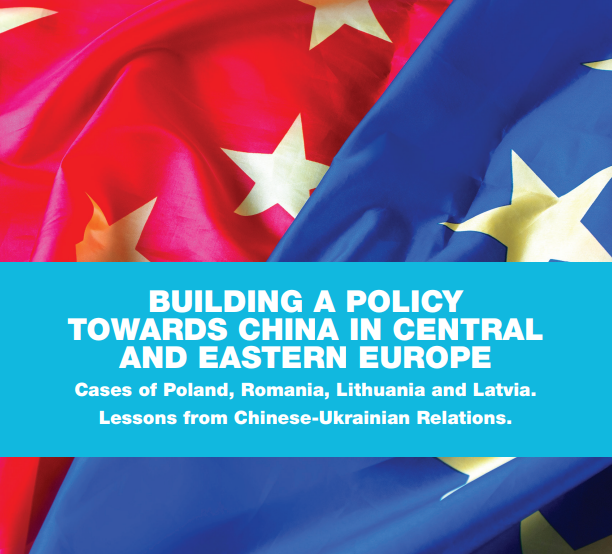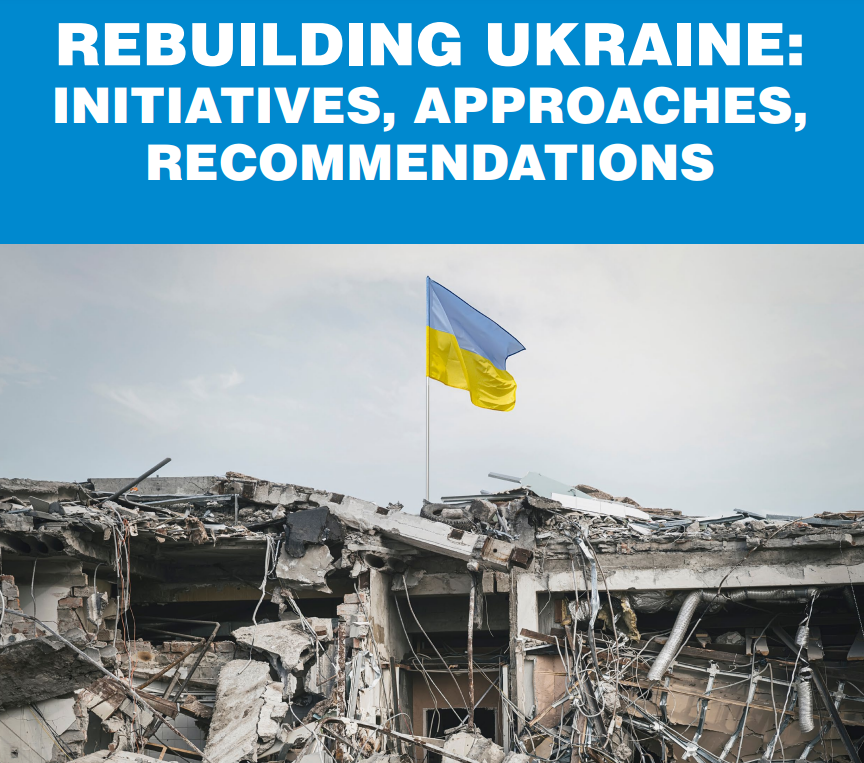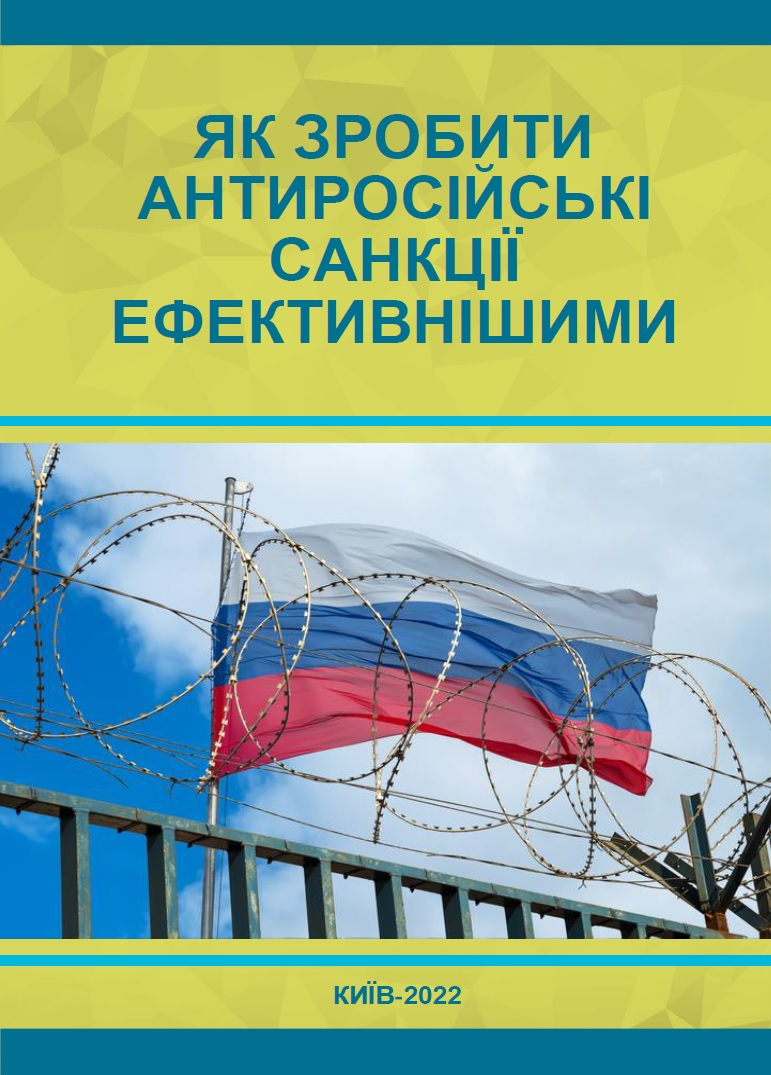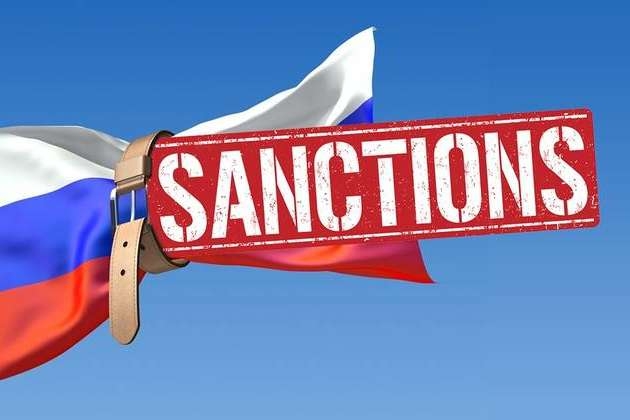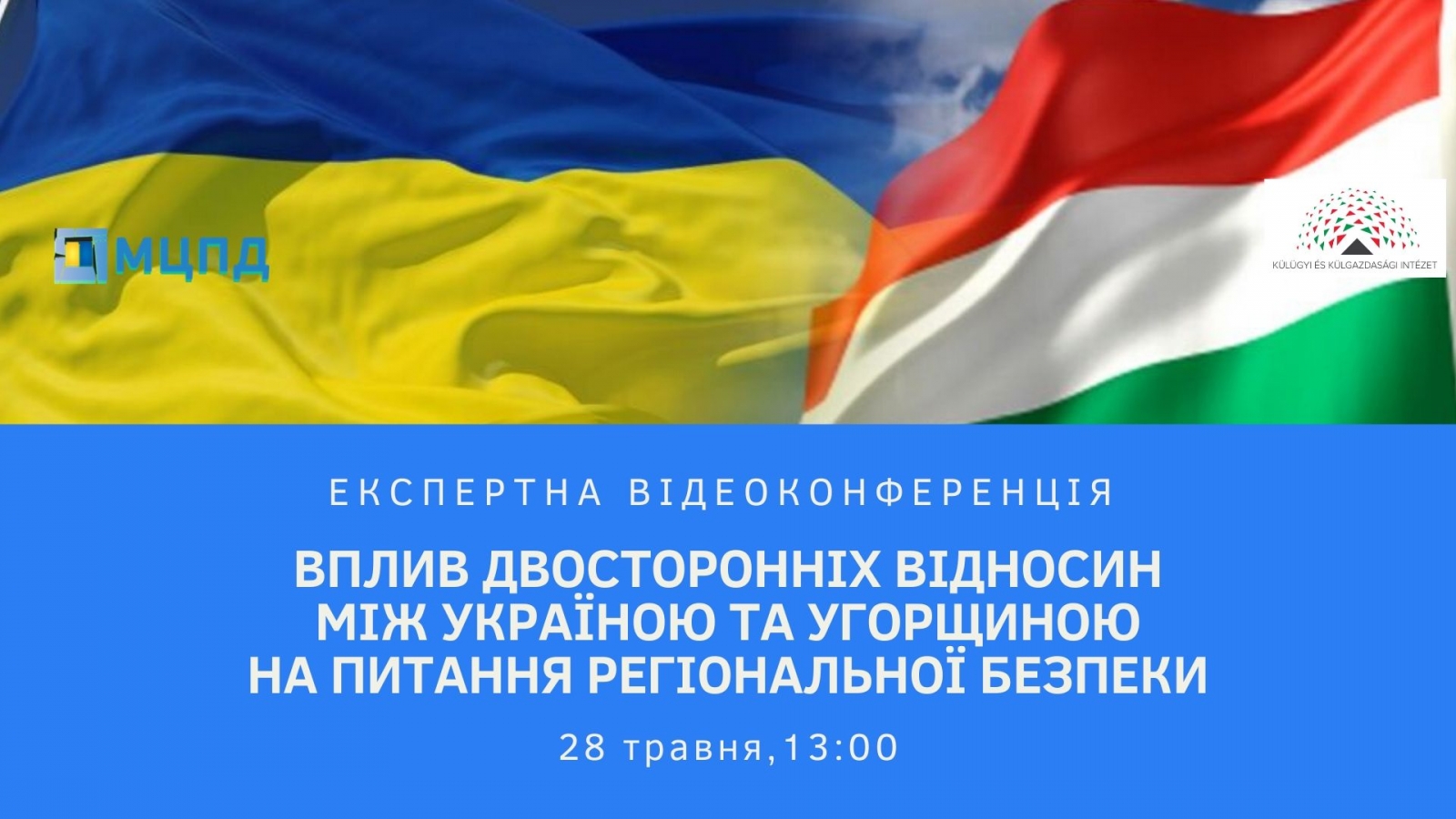Ways to tackle long-term effects of Russia’s aggression against Ukraine and to resolve a conflict between the two are in the focus of presidential campaign in Ukraine. But after elections are over, the issue will still remain on the top of the regional security agenda.
For five years geopolitical effects of Kremlin’s aggressive decisions on Ukraine have been downgrading security architecture in Europe. This is not only a problem of Ukraine, but a common challenge. Lack of trust, application of violence, and institutional weakness are making Europe a more dangerous place.
The Minsk format, designed to contain the conflict in the East of Ukraine, has been the basic framework for managing the conflict. One thing is evident so far: it is apparently not enough. It proved helpful in containing Russian advance and freezing the conflict to a level of 100-150 battle casualties from each side annually. On the other hand, at some point it may also have become useful for making the conflict protracted, just like in a number of other post-Soviet cases. Disputed areas, separatists supported from Kremlin, Russian interference are common features of a geopolitical landscape in this part of the world. Seen as instruments for advancing Russia’s geopolitical interests, these conflicts, however, are often utilized by local elites for mobilizing internal and foreign support. But that is a risky game: benefits of that kind are covered by long-term security expenses. Frozen conflicts not only undermine security of home countries for decades, but also affect neighboring countries, which have to share the risks. So far there hasn’t been any reason to believe that Minsk format would be able to resolve the conflict in the East of Ukraine.
A stalemate of Minsk raises the issue of possible alternatives. One of them has always been around: breaking away from the agreement. Supported by hardliners in Ukraine, this option could hardly improve the country’s chances in struggling against Russia and at the same time places international sanctions against Russia under threat. Ukraine remains a weaker side to an asymmetric conflict, which means that a bad agreement is usually better than no agreement at all.
Another alternative has recently appeared on the agenda of Yulia Tymoshenko, one of the favorites of the presidential campaign in Ukraine. It is called “Budapest Plus”, referring to the Budapest memorandum of 1994, according to which Ukraine got security assurances in exchange for giving away its nuclear weapons. The main idea behind Budapest Plus is to engage the US, the Great Britain, France, China, Germany and the EU into an extended format, which would replace Minsk as a principal tool for conflict resolution.
There are at least two advantages such a format could bring about. First, a military conflict in Donbas is a part of a broader problem, which is security deficit in Eastern Europe. For various reasons, the region is facing elevated security risks. This is a problem for many, not just for Ukraine. Expanding a circle of mediators would follow the simple fact that states do care. Moreover, Russia’s actions against Ukraine have damaged mutual trust so much, that now it seems that bilateral issues can be approached only within a broader task of rebuilding security in Europe. This is something major powers can take care about.
Secondly, Budapest Plus may help not only increase pressure on Russia, but also to create a more favorable framework for Ukraine to deal with Russia in the long run, in particular over the issue of occupied Crimea.
Along with providing Ukraine with more leverage, a broadened format could also be more effective in restoring elements of world order, ruined by Russia’s decision to occupy Crimea in 2014. In the end most countries would benefit from restoration of international institutions, recharging of international law, and return of justice. Reference to Budapest memorandum underlines a connection between Ukrainian security and durability of non-proliferation regime, something most major powers are especially interested in.
Getting major powers on board would be hard – probably, the most challenging part of Tymoshenko’s plan. However, it doesn’t seem impossible. Europeans are already in, they just need to be persuaded to get a bit more involved – and get more security on their eastern borders in return. China is expanding its cooperation with Eastern Europe. Even though Ukraine is not taking part in the 16+1 format, the country’s instability and military standoff with Russia is negatively affecting the region in general, especially in areas which are priorities for China: infrastructure and energy. If Beijing wants more presence and more influence in Eastern Europe, it has to consider bigger responsibility for security concerns.
The US strategic goal of deterring Russian revisionism would play in Ukraine’s favor. However, Kyiv must be very precise in calculating its value as an ally for the US. Americans don’t seem to be willing to engage at any terms. Ukraine will have to increase its credibility and effectiveness. That could be seen as a part of preparatory work for launching Budapest Plus.
Approaches to dealing with the conflict in Donbas can surely be modified and expanded. But they have to bear two key components to be effective: mechanism for compensating Ukraine’s weakness against Russia and a way to include risks Ukraine is facing into a broader security agenda in Europe.
Author: Mykola Kapitonenko
ICPS experts researched the question of building a policy towards China in Central and Eastern Europe
ICPS has prepared an analytical study focused on the evolution of China's regional policy in Central and Eastern Europe, as well as recommendations for developing policies towards China in the region. The "One Belt, One Road" initiative has become a key tool for promoting China's geopolitical interests and implementing its grand strategy aimed at changing the existing international order. This global initiative encompasses transportation, logistics, trade, and investment projects, promoting China's transition to a new level of influence and responsibility. Europe plays an important role in this. The European market is a natural "center of gravity" for China's export-oriented economy; Beijing seeks to build strong cooperation with Europe based on active trade and interdependence. China, in its turn, is also an important trading and economic partner for Europe. Central and Eastern European countries (CEE) have in some sense become "gateway" to Europe for China. Seeking to deepen relations with them and involve in its own infrastructure projects, China has developed and implemented a regional policy within the framework of the "14+1" initiative (previously "16+1" and "17+1"), as well as on a bilateral level. This Chinese activity has elicited ambiguous reactions both among participating states and among other EU members. Russia's invasion of Ukraine has brought new problems to the agenda and significantly weakened China's position in Europe, particularly in the CEE. Political and security issues have taken priority over trade and infrastructure. The ongoing war has forced both China and countries of the region to adjust their perceptions and policies towards each other. The most vivid trends and problematic issues are examined in the paper utilizing the experience of Poland, Romania, Lithuania, and Latvia. Taking also into account Ukraine's experience in building relations with China, recommendations are provided for the main elements of CEE's policies towards China. More information can be found at the following link: https://icps.com.ua/en/our-projects/publications/building-a-policy-towards-china-in-central-and-eastern-europe/
What are the main problems of reconstruction plans for Ukraine and what are the ways to solve them: experts provided recommendations
International Centre for Policy Studies has presented the document "REBUILDING UKRAINE: INITIATIVES, APPROACHES, RECOMMENDATIONS", which analyzed different aspects of the future reconstruction process for Ukraine. According to various estimates Ukraine's total losses resulting from Russian aggression at the end of 2022 constituted around 700 billion US dollars. This amount has been increasing every day of Russian attacks and bombardments targeting civilian infrastructure and killing innocent people. The international community recognizes the need to finance reconstruction of Ukraine. There have been many international conferences, expert studies and discussions on that. However, there is currently no consensus on sources or tools for Ukraine's rebuilding projects, no agreed overall concept of how the process will be conducted and implemented. Meanwhile, needs of Ukraine for reconstruction are urgent and vital to keep country viable and able to withstand Russian continuing aggression. This necessitates an in-depth study of the issue as well as public and expert discussions to suggest appropriate decisions. In this paper the International Center of Policy Studies examines existing international experience of post-war reconstruction with a special attention to good examples, which can be used by Ukraine. Existing initiatives regarding the reconstruction of Ukraine are analyzed with a focus on new ideas and recommendations, which can be used in this process. The study intends to contribute to current expert discussions in Ukraine and among our partners on reconstruction of the country during and after the war. You can read/download the ICPS publication "REBUILDING UKRAINE: INITIATIVES, APPROACHES, RECOMMENDATIONS " by following the link: https://icps.com.ua/en/our-projects/publications/rebuilding-ukraine-initiatives-approaches-recommendations/
How to make sanctions more effective: ICPS analysts offered new ideas
International Centre for Policy Studies has presented the document "How to make anti-Russian sanctions more effective", which analyzed the gaps in the sanctions policy. It is noted that the international community has adopted seven packages of sanctions against Russia since its full-scale invasion of Ukraine in 2022. Over 50 countries have in some form joined the sanctions regime. Some states, such as Israel and China, don't adopt sanctions but block potential ways for Russia to evade their effect. Mainly, it is the developing countries that don't implement the sanctions regime, while the collective West is decisive and united in its exploit of the tool. Akin to 2014 and after, sanctions constitute a complex mechanism of selective action. They are not absolute but rather operate in different sectors and against particular individuals or legal entities. In addition to sectoral sanctions, diplomatic and visa restrictions are in place. At the same time, to make the sanctions more effective, the international community should fill the gaps that allow for a selective designation of Russian oligarchs and politicians. It requires a systemic analysis and monitoring aimed at finding these gaps, then sanctioning the individuals who had avoided personal sanctions. Accordingly, this document contains not only an analysis of the sanctions policy, but also recommendations for minimizing its gaps. You can read/download the ICPS publication "How to make anti-Russian sanctions more effective" by following the link: https://icps.com.ua/en/our-projects/publications/how-to-make-anti-russian-sanctions-more-effective/
SINO-UKRAINIAN RELATIONS: RESEARCH PAPER
In context of the ICPS' latest project on monitoring foreign economic relations, ICPS experts have conducted extensive research, round table debates and in-depth analysis of the current status of Sino-Ukrainian relations. China's political interest and economic investments in Ukraine has risen exponentially since the announcement of the One Belt One Road Initiative, yet is Ukraine ready for intensifying bilateral relations with such a world power? For more details, read the ICPS' latest study.
Austrian experts and diplomats discussed ICPS study “Sanctions against Russia”
Sanctions must remain a key instrument of pressure on Russia to restore Ukraine's sovereignty and territorial integrity. This conclusion was reached by Ukrainian and Austrian foreign policy experts during expert discussion of the ICPS study “Sanctions against Russia: current state, prospects, successes and gaps of the multilateral international sanctions regime against Russian Federation”, which took place on Tuesday, June 3, in the format of online discussion. About 40 Austrian and Ukrainian diplomats, analysts and foreign policy experts took part in online discussion “Sanctions against Russia: are they still effective?”, organized by ICPS in conjunction with the International Institute for Peace (IIP, Vienna) with the support of the International Renaissance Foundation. The speakers were Hannes Swoboda, President of the International Institute for Peace (IIP), Peter Havlik, expert at the Vienna Institute for International Economic Studies, Anastasia Galushka, ICPS expert in international law and human rights and Mykola Kapitonenko, ICPS associate expert. The participants of discussion stressed the need to continue sanctions against Russia, as Russia's actions in Ukraine are a challenge not only for our country, but for the entire international community which is why they must receive a joint coordinated response. “Sanctions, as a tool “between wars and words”, remain the only way to put pressure on Russia's foreign policy while limiting its destructive potential for international security,” ICPS expert in international law and human rights Anastasia Galushka said. According to Mykola Kapitonenko, combination of different types of sanctions will allow for a more systemic impact on Russian policy; while the procedure of their periodic extension will signal the dependence of sanctions pressure on specific changes in the behavior of the Russian Federation. It should be noted that earlier ICPS experts presented the study “Sanctions against Russia” in the United States, Estonia, Belgium, Italy and Poland. You could download and read ICPS study “Sanctions against Russia” via the link: https://cutt.ly/orQ0PGd
ICPS conducted a video conference on bilateral relations between Ukraine and Hungary
On Thursday, May 28, the International Centre for Policy Studies (ICPS) and the Institute for Foreign Affairs and Trade (Hungary) initiated an expert video conference on “Impact of Bilateral Relations between Ukraine and Hungary on Regional Security”. The online event was part of the project “Ukraine-Hungary: Towards Understanding” with the support of the Institute for Foreign Affairs and Trade. During the video conference, the participants discussed the state and prospects of relations between Ukraine and Hungary in the context of regional security, Hungary's role in Ukraine-NATO relations, the impact of the Russian conflict on Ukrainian-Hungarian relations and regional security. The event was attended by several dozen experts, including Christina Murphy, Deputy Head of Mission, Hungarian Embassy in Ukraine, Georgy Ilyash, research fellow at the Institute for Foreign Affairs and Trade (Hungary), Mykola Kapitonenko, ICPS Expert on Foreign Policy, Dmytro Tuzhansky, political scientist, expert on Ukrainian-Hungarian relations, Anastasia Galushka, ICPS expert on foreign policy and international law. “Relations between Hungary and Ukraine still remain in a well-known deadlock,” Mykola Kapitonenko said. - Minor shifts in recent months, firstly, do not fully meet the expectations that arose after the victory of Volodymyr Zelensky in the presidential election, and, secondly, according to Budapest, do not solve the key problem of narrowing the rights Hungarians in Ukraine”. According to him, the rapid development of events in the region pushes our countries to cooperation. Against the backdrop of the coronavirus pandemic, a bilateral agreement on health cooperation was signed, a corridor was set up in Hungary for Ukrainians to return home, and new formats of governmental remote communication were tested. “The usual agenda, dominated by the Russian threat, retaliation by NATO and the lack of democracy, is giving way to the challenges of pandemic,” Mykola Kapitonenko said. - In addition to those directly related to human health, these are problems that have already been or will be caused by the economic recession and the growing demand for security among citizens. Together, they change the way states communicate and perceive each other. Borders and various barriers are being partially restored, selfishness is growing, and political decisions are returning to the usual national level.” Anastasia Galushka drew attention to the controversial law on education which provoked numerous discussions at the political and professional levels. “It can hardly be argued that citizens living in Ukraine should know the state language of the country, and that this law can only be seen as an advantage for members of national minorities,” ICPS expert said. “However, implement the law in practice was much harder than expected.” According to her, the Venice Commission also addressed this issue and formulated some principles, stating that knowledge of the official language of the state is a factor of social cohesion and integration, and it is legitimate for states to promote their language and call for the state language to be the language of education for all. “Ukraine and Hungary are part of a single region, establishing cooperation and maintaining a common consensus could significantly expand the capabilities of both countries,” Anastasia Galushka added. - This would control the level of escalation of the conflict. The regional context can open new horizons for both states, take them out of the circular discussion and focus only on current problems. A full-fledged strategic partnership is still a long way off, but at least the current crisis can be overcome.”

